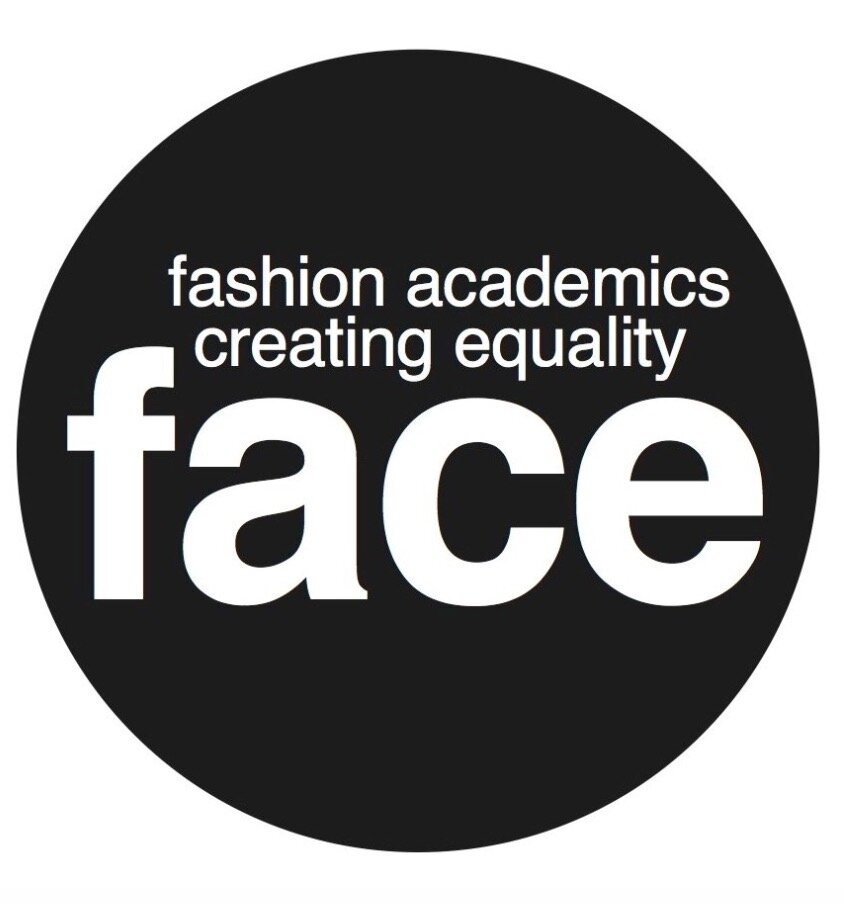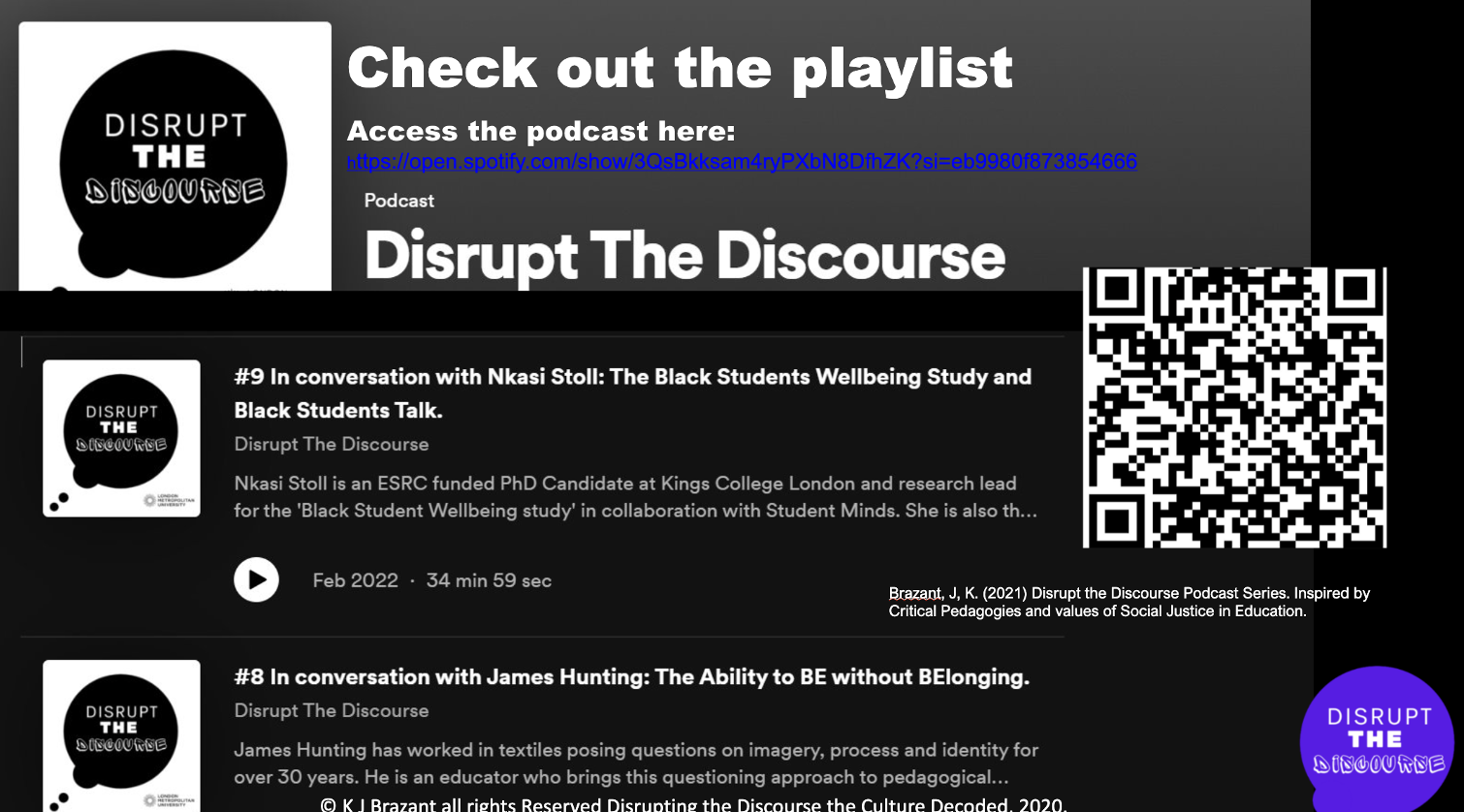Podcasting as Pedagogy
Facilitating Race: Disruption, Empowerment and Fatigue in the Academy.
Podcasting as pedagogy: Kevin J. Brazant, SFHEA weaves counter-stories of resistance, scholarship, and student co-creation to challenge exclusion in Higher Education.
FACE X RCA Summit November 2024
Kevin J Brazant, SFHEA is a Progression and Attainment Project Manager | Public Intellectual & Talks Producer at Lounge Akademics™ | Creative Disruptor-in-Residence, University of the Arts London.
How do we tackle the structural inequality in Higher Education that leads to differential student outcomes for racialised groups?
This question continues to haunt the UK’s higher education sector; a sector being called to account for its role in maintaining structural inequality and producing inequitable student outcomes. Commonly referred to as the "Degree Awarding Gap," these disparities disproportionately affect students from non-white backgrounds. But we are not without tools or testimony. One powerful method for addressing these injustices is counter-storytelling, an approach that centers lived experience as a valid and necessary form of knowledge production.
“Through authentic, open conversations, we explore how racialised identities interact with the power structures of academia.”
In the Disrupt the Discourse Podcast, I use this methodology to amplify the voices of antiracist scholars and their students. Through authentic, open conversations, we explore how racialised identities interact with the power structures of academia and how creative practice and dialogue can become tools for resistance, healing, and change.
The Disrupt the Discourse Podcast with QR Code.
The Power of Podcasting as Pedagogy
Podcasts offer a unique, unfiltered space for brave conversations about race and inequity in UK higher education. They provide a digital platform where marginalised staff and students can speak their truths, not just to each other, but to the broader academic community.
As part of the summit, we shared one such space with Creative Arts Practitioner and Educator, Bonita Charles, who opened the session by performing her poem Disruption. It was a searing, poetic response to the realities captured in the Disrupt the Discourse podcast and exemplified the agency that can emerge from creative, reflective storytelling (Brazant, 2021).
Bonita’s performance helped frame our conversation around the following key tensions facing racialised students and staff in Higher Education:
Creative Methodologies as Tools for Inclusion
Podcasting is more than a creative outlet, it is a methodological intervention that challenge traditional models of curriculum design, which often silence or exclude marginalised voices.
Infographic: ‘A visual journey toward an antiracist pedagogy in Higher Education.’
Racial Battle Fatigue
The emotional and physical toll on racialised individuals who are expected to lead the work of institutional change, without the institutional power to make that change lasting, cannot be ignored.
Disrupting Deficit Narratives
Within the academy, Black and minoritised individuals are too often framed through narratives of deficiency and ‘impostor syndrome’. Our stories must reclaim complexity, talent, and plurality.
Student and Staff Autonomy
Through storytelling and personal narrative, we create space for racialised voices to express, process, and reframe their academic realities on their own terms.
Awareness of Collective Trauma
Whether in struggles for promotion or navigating microaggressions, both students and staff carry the trauma of exclusion. Awareness and collective reflection become critical forms of resistance.
Dialogue Without Predetermined Outcomes
As educators and co-conspirators, we must sit in the discomfort of uncertainty. Change isn't linear. Dialogue is a return, not a conclusion.
These themes form the foundation of the Student Partnership Framework (Brazant, 2023), a dialogic model grounded in co-creation, which centres experiences of othering related to race, gender, class, immigration, and ableism. A student partnership and co-creation framework addressing attainment and inclusion through disruptive pedagogical practices. It’s a framework that not only supports educational change, but it also demands it.
Image of the student experience in Higher Education.
Uncomfortable Truths, Necessary Conversations
Other pressing challenges in the academy include the systemic erasure of Black histories, the underrepresentation of Black academic staff, and the closure of courses and departments that serve diasporic communities. These issues are not incidental, they are structural (Arday and Mirza, 2018).
To explore how staff and students navigate these oppressive environments, I used Mentimeter to facilitate real-time responses at the seminar. The question posed was:
“How do you navigate these challenges, including the fatigue, that accompanies facilitating racial equity in student partnerships?”
Participants responded with honesty, frustration, and hope:
· “I bring with me my decolonial collective... their legacy helps hold me and my students.”
· “I listen deeply, but it’s hard with white, female student majorities who disengage.”
· “I stop chasing validation. If colleagues don’t acknowledge me, I preserve my energy.”
· “I used to stay silent. Now I speak. Now I correct what must be corrected.”
One senior lecturer shared a particularly nuanced reflection:
“As a white academic, I engage the most resistant first. I build empathy without softening the message. It’s not about comfort; it’s about connection and accountability.”
These reflections remind us that silence is not always self-preservation, sometimes, it’s strategy. And at other times, speaking up is a lifeline.
Literary Echoes: Lavelle Porter and the Black Academic Life
These UK-based experiences deeply resonate with the insights found in Lavelle Porter’s The Black Academic Life: Academic Fiction, Higher Education, and the Black Intellectual. Porter explores how Black academics are portrayed in literature and uses those depictions to interrogate real-world structural racism, identity, class struggle, and the exhausting labour of existing within neoliberal universities. His work is not only literary criticism, it is a survival guide, a mirror, and a call to action (Porter, 2019).
Like Porter, we must name the toll of this work, but also its promise. From academic fiction to lived fact, from US classrooms to UK campuses, the struggle remains shared, systemic, and urgent.
:From academic fiction to lived fact, from US classrooms to UK campuses, the struggle remains shared, systemic, and urgent.”
Lounge Akademics photo. The microphone symbolic of the power of dialogue.
In Closing: From Discourse to Disruption
If higher education is to be truly inclusive, we must embrace bold methodologies, brave voices, and radical care. We must move beyond performative diversity towards co-created sustained transformation.
Through student co creation, the Lounge Akademics platform, and counter-storytelling practices, I continue to build spaces where those who have been silenced can speak, where those rendered invisible become central, and where discomfort becomes a catalyst, not a barrier for meaningful change.
Student Co creation App and eLearning platform.
👉🏾 If you're interested in working with me or exploring the app and e-learning platform, fill out the Expression of Interest here:
🔗 https://forms.gle/ryLWPwqQp2NTMC9c9
Let’s not just disrupt the discourse, let’s rewrite it.
References:
Akel, S. (2019) Insider-Outsider: The Role of Race in Shaping the Experiences of Black and Minority Ethnic Students. Goldsmiths University.
Arday. J, and Mirza, S., H (2018) Dismantling Race in Higher Education . Palgrave Macmillan Cham. Available: https://doi.org/10.1007/978-3-319-60261-5
Bhambra, Gurminder K. , Gebrial, Dalia Nişancıoğlu, Kerem (2018) 'Decolonising the University'. Publisher Pluto Press. Accessible at: http://library.oapen.org/handle/20.500.12657/25936
Brazant, K (2023) Disrupt the Discourse: Applying Critical Race Theory as a conceptual framework for learning and teaching. Special Issue on Equity & Inclusion Efforts: Tackling inequality in educational and other contexts. In Equity in Education & Society, (Sage publications). Available: https://doi.org/10.1177/27526461231163325
Brazant, J, K (2021) The Disrupt the Discourse Podcast: Inspired by Critical Pedagogies and values of Social Justice in Education. Available: https://open.spotify.com/show/3QsBkksam4ryPXbN8DfhZK?si=eb9980f873854666
DiAngelo, R. (2018). White fragility: Why it's so hard for White people to talk about racism. Beacon Press.
Porter, L. (2019). The Black academic life: Academic fiction, higher education, and the Black intellectual. Northwestern University Press. Available: https://nupress.northwestern.edu/9780810140998/the-blackademic-life/
Samuel D. Museus, María C. Ledesma, Tara L. Parker (2015) Racism and Racial Equity in Higher Education. Published by Wiley online Library. Accessible at: https://doi.org/10.1002/aehe.2006






